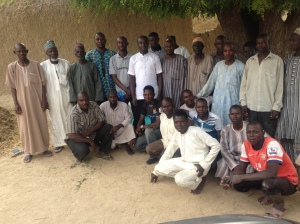By Etta Michael Bisong
Abuja
Although access to Water, Sanitation and Hygiene (WASH) are basic human rights, however, it’s pathetic to reinforce that 121 million Nigerians according to the World Health Organisation (WHO) still live without access to these services. As if that is not enough, the figure further estimated that over 40 million of the entire population still practice Open Defecation.
This story no doubt is a sad one as over 95, 300 children die before age 3-5 years and the number is increasing by the day as need for these services continue to grow due to the increase in human population. Lack of access to WASH services is said to also be responsible for diseases such as cholera, typhoid and other related illnesses adjudged as human killers.
These challenges clearly have contributed to the growing death profile in the country. But like the old adage, there is no problem without solution. One organisation that shares this belief is WaterAid Nigeria. The charity organisation has being intervening and implementing programmes and projects in affected states to help address this unpleasant situation.

The organisation in 2014 unveiled an initiative dubbed – “Vote4WASH” to engage and sensitise citizens, particularly the youths on the need to use their votes to confront their representatives and political aspirants to prioritise WASH into their campaign manifestos. This campaign has since raised the profile of WASH across the country. Presently they are also intervening in six states of the federation with over 58 communities in Jigawa State alone.
Benefiting communities during an inspection visit by journalists to project sites in Jigawa State lauded these interventions, describing them as timely and impactful.
“At least we know that open defecation is a serious problem that threatens both environment and by implication human health,” said Buyama Inusa, the village head of Kankaren Shatima.
Inusa added that over 60 per cent of the community members now have toilets in their houses, and has adopted a monthly sanitation strategy as part of measures to complement the efforts of WaterAid in tackling this environmental epidemic.
“We thank WaterAid Nigeria for coming to our aid,” he said. “Our prayer is that they should continue to empower us with knowledge to enable us properly solve this problem.”
The head of WASH department under Maigatari local government area, Shehu Suleiman, also acknowledged that a lot of successes have been recorded since WaterAid embarked on the implementation of projects in the state, especially in communities around the Council.
One of the major problems he observed is the lack of awareness on the part of the end users of these WASH facilities, and urged WaterAid to critically look into the matter moving forward.
Suleiman hinted that the state government has being intervening through policy enactment and other infrastructural amenities as way of contributing to the solution.
The bottom line here is simply, WaterAid Nigeria not only know that this problems exit, they also belief that it’s solvable and they are just doing that. Government like WaterAid must demonstrate this understanding as matter of responsible and ensure that issues of WASH are taken seriously as fundamental human right, mostly as we approach another election season.
This site can be a walk-by for all the data you wished about this and didn’t know who to ask. Glimpse here, and you’ll positively uncover it.